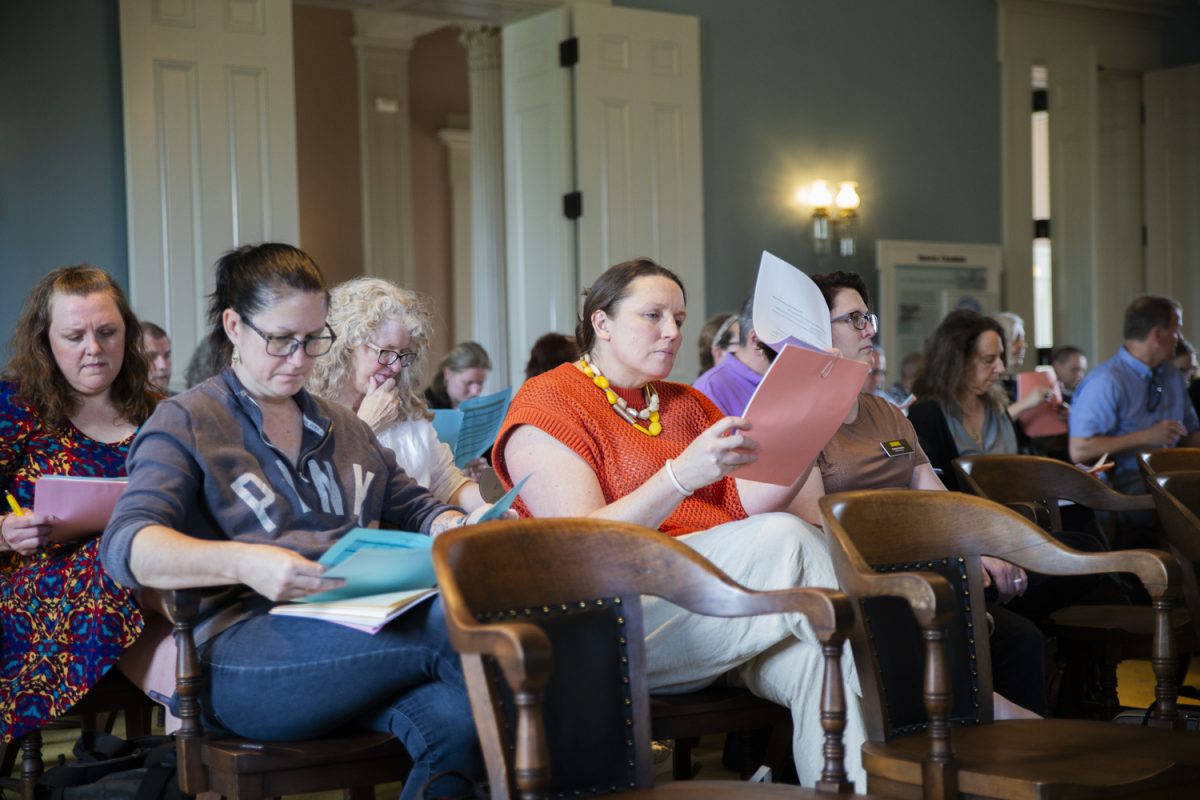By Naomi Hofferber
This month, the University of Iowa Student Government created a new campaign called Down-Vote Hate to encourage students to vote down hate speech on social-media platforms, specifically Yik Yak.
For its users, Yik Yak offers a free platform on which to anonymously post opinions — whether they are harmful or not. Available nationwide, the app allows users to view and write messages that can be seen by people in immediate areas. Users can then “vote up” or “vote down” specific messages.
Last year, the administration wanted to focus on reducing the hate speech, specifically on Yik Yak, said Kelly Shearer, the UISG communications director.
“I think it’s just the ongoing Yik Yak situation, in which people just feel like they can say whatever they want about whatever they want just because they’re behind a phone,” she said. “On Yik Yak, people say things that are very mean comments toward international students and toward students who identify as something different or just if they look different or if they act different. Yik Yak really targets those people.”
In the past, racist and hateful messages have been spread on Yik Yak on the UI campus. The Daily Iowan previously reported that international students and Asian American students at the UI had been targets of xenophobic messages.
One post read, “Guys if we don’t do something soon, this university will be more Asian than anything, and if so, I’m leaving …”
Another read, “Iowa City? More like Chinatown.”
“When mean and hateful things are said on Yik Yak, it really increases the gap between domestic and international students, and that’s the opposite of what UISG wants,” Shearer said.
Lee Seedorff, the senior associate director of UI International Students & Scholars, wrote in an email sent to The Daily Iowan that the campaign is a great effort by UISG and the Graduate/Professional Student Government.
“It is important for the university to be aware of and comment when things like this happen, but I also believe that hearing from other students can have more impact,” she said. “When peers are saying something isn’t right, pointing out the problems with such behavior and challenging negative mindsets, it can carry more weight than hearing it from a professor or administrator.”
UISG plans for the campaign to spread on social media, on which hate speech can occur.
UI freshman Brandon Stanuch said although the campaign is on the right track, harmful messages are still going to spread.
“The idea’s in the right path, it’s on the right track, it’s for a good thing, but I don’t think there are going to be results. I think it’s a waste of time,” he said. “Freedom of speech, lack of consequences … there’s no reason for people to stop; if they are going to voice their opinion, they’re going to voice their opinion.”
Yik Yak’s latest user policy states: “DO NOT bully or specifically target others. This includes but is not limited to defaming, abusing, harassing, stalking, and threatening others.” While messages can be flagged or reported, as with any social media, regulation can be a challenge.
Justin Hu, a UI student from China, said that although he has not experienced any hateful behavior personally and people have been friendly, he hopes this campaign works.
“It’s a different environment, culture, and the way people deal with other people is so different from China,” he said. “It is a challenge, but it’s fine for me.”
Shearer noted that although UISG condones free speech, it discourages speech that could be harmful.
“We want students to voice their opinions, we want them to be heard … it’s freedom of speech, you can say whatever you want to say, we want that,” she said. “But we don’t want students to say mean, harmful, stereotypical, negative statements.”







